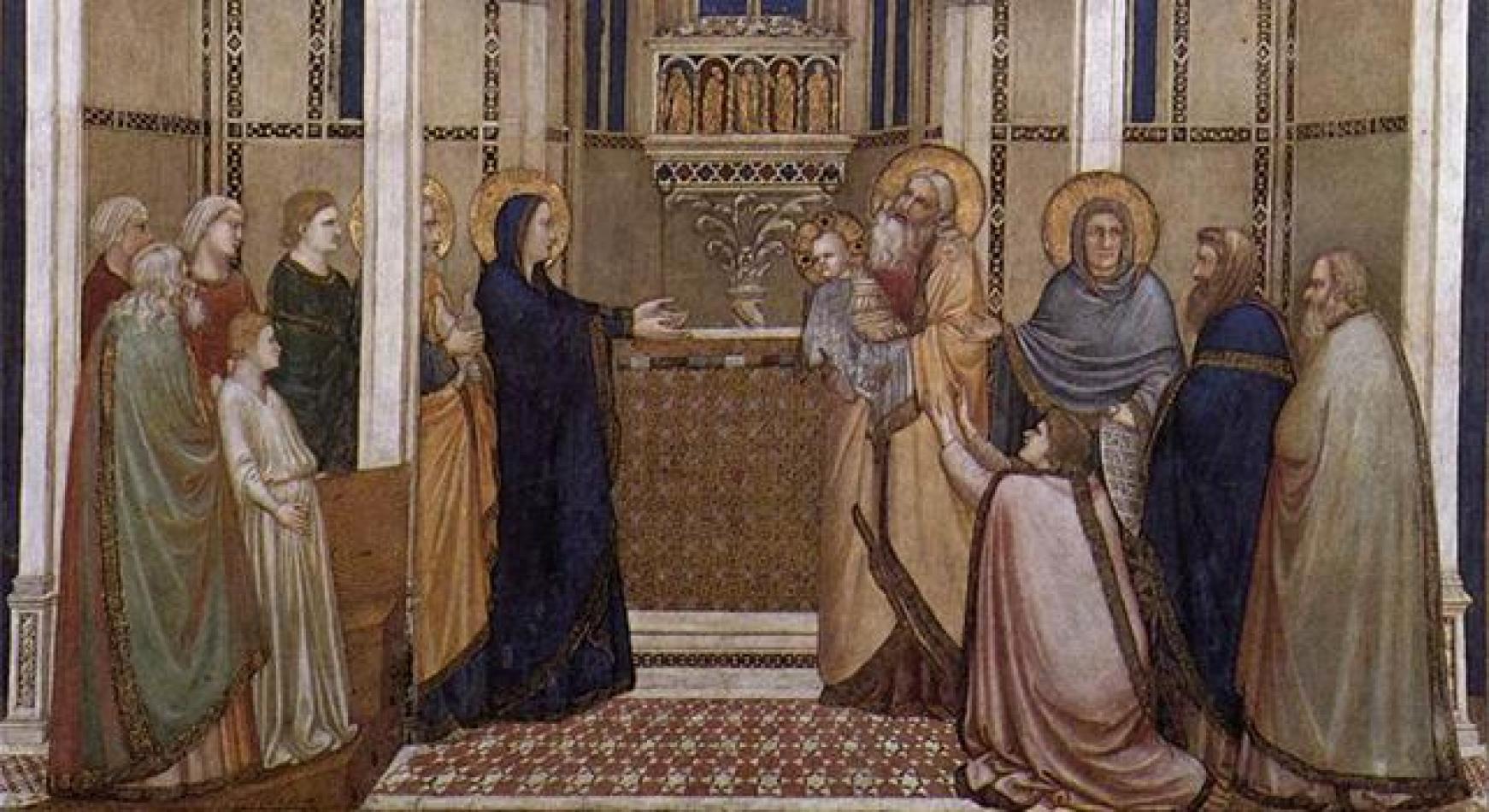Daniel Comboni
Comboni Missionaries
Institutional area
Other links
Newsletter
In the Gospel of the last two Sundays, we listened to a message that is in stark contrast to the logic of people: all who were considered unhappy people (the poor, the hungry, those who cry, the persecuted) are proclaimed blessed. The successful persons (the rich, the satiated, those who enjoy life) were disowned. There could be no overturning more radical than this.
Luke 6: 39-45
There is only one Master
Fr. Fernando Armellini
In the Gospel of the last two Sundays, we listened to a message that is in stark contrast to the logic of people: all who were considered unhappy people (the poor, the hungry, those who cry, the persecuted) are proclaimed blessed. The successful persons (the rich, the satiated, those who enjoy life) were disowned. There could be no overturning more radical than this.
But that is not enough. The principle of absolute non-violence was also established: a Christian cannot respond to evil with evil, but must always be willing to love even the enemies. It is about shocking statements. It is inevitable then that, even in the Christian community, some attempt to sweeten them, to make them less harsh, a bit more compatible with human weakness.
Someone says, for example, it is true that one cannot resort to violence, however, in certain cases … one has to forgive, yes, but not to the point of being considered naive and inexperienced. If one teaches the children to be generous at all costs, not to compete, to take the side of the weak, they are placed in a position to be overpowered by the wicked and unscrupulous people.
Those who speak in this way, even if they are Christians, act as false teachers, perhaps without realizing it. With skillful distinctions and subtle reasonings, they deprive the message of Jesus its explosive power. Today’s Gospel, consisting of a series of the Lord’s sayings, is directed to them. It starts with a well-known proverb: “Can a blind person lead another blind person?” (v. 39).
One day the disciples told Jesus that the Pharisees were offended by his words. He responds: “Pay no attention to them! They are blind leading the blind” (Mt 15:14). All Jews considered themselves masters capable of guiding the blind, that is, the Gentiles (Rom 2:19-20). In today’s passage the recipients of the Lord’s dramatic warning are not, however, neither the Pharisees nor the Jews, but the disciples themselves. Even for them, there is a danger of acting like blind guides. In the Church of the first centuries, the baptized were called the enlightened ones because the light of Christ had opened their eyes. Christians should be those who see well, who know how to choose the right values in life, which are able to indicate the right path to those who grope in darkness.
But this does not always happen and Jesus warns his disciples of the danger of losing the light of the Gospel. They can fall back into the darkness and be led, like the others, by false reasoning dictated by human “common sense.” When this happens in front of them a deadly chasm opens in which those who have trusted them also fall.
False Christian teachers can commit another error, dictated by the presumption: believing that everything they think, say and do is wise, just and in conformity with the Gospel. They feel to have the right to issue instructions in the name of Christ, with such security as to give the impression that they substituted the Master, nay more, that they are superior. They demand titles, privileges, honors, powers that even the Master never claims to have.
To anyone in the community who feels invested with a similar authority, Jesus recalls another proverb: “A disciple is not above his master, but when fully trained he will be like his master” (v. 40). The danger against which Jesus warns is above all to identify our own ideas, beliefs, projects with his thoughts. It is a reckless presumption, thoughtless, forgetting that we are only disciples; we feel like masters, indeed, we may behave as if we were superior to the Master.
It is not over. These false teachers claim to themselves a right even more exorbitant; they do something that Jesus himself never wanted to do (Jn 3:17): they judge, pronounce sentences against the brothers. For them, the parable of the speck and the log is told (vv. 41-42). It is an invitation to be wary of Christians who feel always right, always sure of what they say, teach and do. They do not realize that they have before in their eyes huge logs that prevent them from seeing the light. Which ones? Passions, envy, desire to rule over others, ignorance, fear, psychological disorders from which no mortal is completely exempted. All these are big “beams” that prevent to clearly grasp the demands of the word of God. We must take this into account and act humbly in a less presumptuous way, be less strict in imposing our vision of reality and less confident judging the others’ performance.
An example to help us to understand. For many centuries Christians have claimed that there are just wars and that, in certain situations, it is even a duty to take up arms. They even waged wars in the name of the Gospel. How could this happen if Jesus spoke so clearly of loving the enemy? The explanation is: the logs of pride, intolerance, dogmatism, fundamentalism that Christians had before their eyes and they do not even realize of having prevented to notice the Gospel demands.
If today we are forced to admit that on many occasions we have shown ourselves blind, we must be very cautious in judging, imposing our beliefs, and in condemning those who express different opinions. It may be that what we think is right, maybe it is truly evangelical. However, Jesus wants that the Christian proposal is made with great humility, with great discretion and respect and, above all, never judging those who cannot understand it, those who do not feel like accepting it. The possibility of having a log in front of the eyes is not remote and must not be forgotten!
To conclude this first part of the Gospel, Jesus calls hypocrites these “judges,” these Christian “masters” so sure of themselves and their ideas. Hypocrites means “actors,” “people acting in theaters.” Those who judge others, for Jesus, are actors. They are also sinners, but “they recite”: they sit in court as judges and pronounce terrible judgments .
Luke is clearly worried by what is happening in his communities, divided by criticisms, gossips, and malicious judgments. For this, he recalls the harsh words of the Lord about it. How to distinguish the good from the bad teachers in Christian community? How to know whom to trust and not to trust? How to recognize those who are blind or have logs before the eyes?
The last part of today’s Gospel (vv. 43-45) provides the criteria to judge: “The good person draws good things from the good stored in his heart and an evil person draws evil things from the evil stored in his heart. For the mouth speaks from the fullness of the heart.”
We are used to interpreting these words of Jesus as an invitation to evaluate people based on the works they perform. This is the meaning they have in the Gospel of Matthew (Mt 7:15-20); but in the Gospel of Luke, they have a different meaning. It is clear from the context that “the fruits” are the message that the Christian teachers announce. This message can be good or bad. Like Sirach—we heard him in the first reading—Jesus, too, invites us to evaluate teachers according to their words: “For the mouth speaks from the fullness of the heart.” (v. 45). What they announce must always be confronted with the Gospel. Then we can evaluate if what is proposed is nutritious food or a poisonous fruit.
https://sundaycommentaries.wordpress.com/




